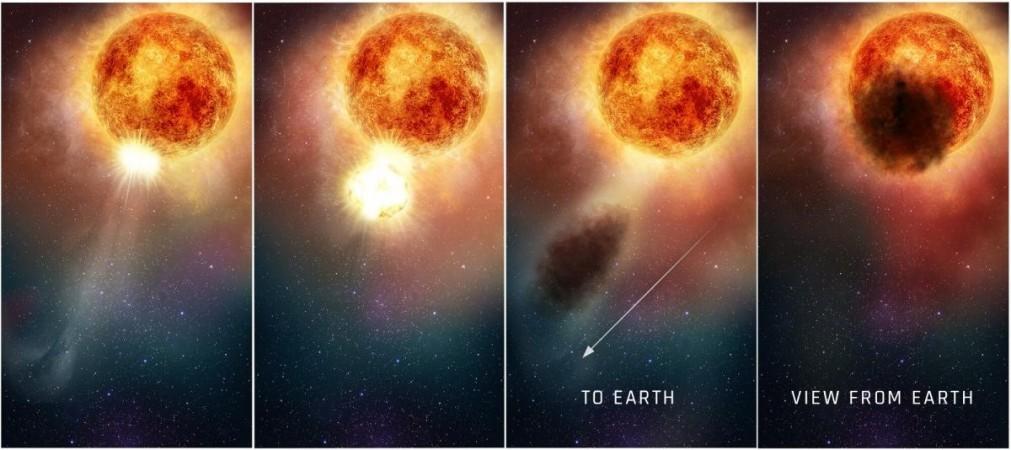
It was last year that space scientists noted unusual dimming of Betelgeuse, a star which is 10 times the mass of the sun. Initially, scientists speculated that the unusual dimming of this star is indicating the possibility of an imminent supernova explosion. But now, new data obtained by the Hubble Telescope has suggested that the mysterious dimming of Betelgeuse is due to some other causes.
What Causes the Mysterious Dimming?
Scientists now claim that the Betelgeuse had ejected a huge hot, dense cloud of material into space that later cooled to form a giant cover of dust. According to experts, this dense cloud has obstructed the light from the star, and as a result, it is appearing dimmer from the perspective of viewers from the earth.
However, scientists are still unclear behind the phenomenon that resulted in the formation of the dust cloud. Scientists believe that more studies should be carried out to understand what exactly is going on with Betelgeuse.
Betelgeuse which is basically a red supergiant. If this giant is located in our solar, its surface would have extended up to the orbit of Jupiter.
Is Betelgeuse's Lifetime Nearing End?
Even though the mysterious dimming of Betelgeuse is due to the dust cloud, space scientists admit that Betelgeuse is now nearing its death, and it will go supernova anytime.
"Frankly, we don't know for sure how soon Betelgeuse will go supernova. It is likely not in our lifetimes. But, we do not know how a star behaves the week before, the night before it explodes," said Andrea Dupree, an astrophysicist at the Andrea Dupreethe Solar Stellar Planetary Sciences Division at the Harvard-Smithsonian Center for Astrophysics, and the lead researcher of the study, in a recent statement.
Will Sun Die?
Just like any other star, the sun in our solar system will also die one day or the other. Brian Cox, a popular English physicist had recently claimed that the sun will also gradually die one day, resulting in the end of the world where we live now.
"The first stars in our universe began to shine around 100 million years after the Big Bang. But it was another nine billion years before our star, the Sun, formed. But our Sun won't live forever, which will obviously have a direct impact on all life on Earth," said Cox.
















